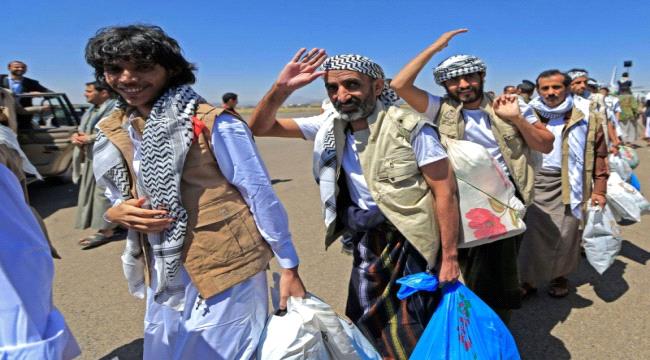SANAA, Dec. 29 (YPA) – About ten months have passed since the signing of the “2,220” war prisoner exchange agreement between Sanaa and the Saudi-led coalition under the auspices of the United Nations.
According to an analysis used by Yemen Press Agency, this agreement has not yet seen the light due to the coalition’s obstruction, as it became clear from the first days after the signing of the agreement that the coalition was delaying in handing over the lists of names to the United Nations, which showed its clear complicity, and its failure to put pressure on the coalition to submit its statements to complete the implementation of the exchange deal.
With Yemen’s entry into a UN-sponsored truce on April 2, Yemenis were optimistic about a breakthrough in this humanitarian file, but what happened was the exact opposite, as the coalition remained intransigent in its position, despite Sanaa’s assurances of its full readiness to implement the agreement and its demand for the UN to take advantage of the period calm to implement the agreement.
Despite the coalition’s procrastination and intransigence, the Prisoners’ Committee of Sanaa made another offer to the United Nations that included the release of 200 prisoners from both sides before the last Eid al-Fitr. In fact, only unknown expatriates and detainees.
Last August, a new round of negotiations on prisoners was held in the Jordanian capital, Amman, in which the coalition confirmed by refusing to provide lists of names, stipulating the release of its prisoners only, with its insistence not to deal with the prisoners’ file that the coalition want to use as a pressure and bargaining card, to remain like the rest of the humanitarian files that it bargains with the Yemeni people to achieve their goals that they were unable to achieve militarily.
It has become clear, since the beginning of the war on Yemen, that the coalition has dealt with the prisoner file according to clear political considerations, which is confirmed by the prisoner deal that being implemented in October 2020, which the coalition would not have implemented had it not been for the pressure of military operations in Marib.
Today, after about seven months have passed since the signing of the 2,220 prisoner deal with the coalition, which had not been implemented due to the coalition’s intransigence, Sanaa once again held the Saudi regime responsible for the stalemate that entered the prisoner exchange deal. The stick in the wheels of the deal through its tools in Marib by putting forward new conditions and names, which means more obstruction to the implementation of the deal.
Abdul-Qadir Al-Mortada, head of Prisoners’ Committee in Sanaa also announced that any selectivity in the prisoner file would be unacceptable and that the Saudi prisoners not be released except with a comprehensive deal, which means that Saudi Arabia’s attempt to expel its prisoners without finding solutions to the prisoner file will not be. Either a comprehensive deal or its prisoners staying in Sanaa.
AA


